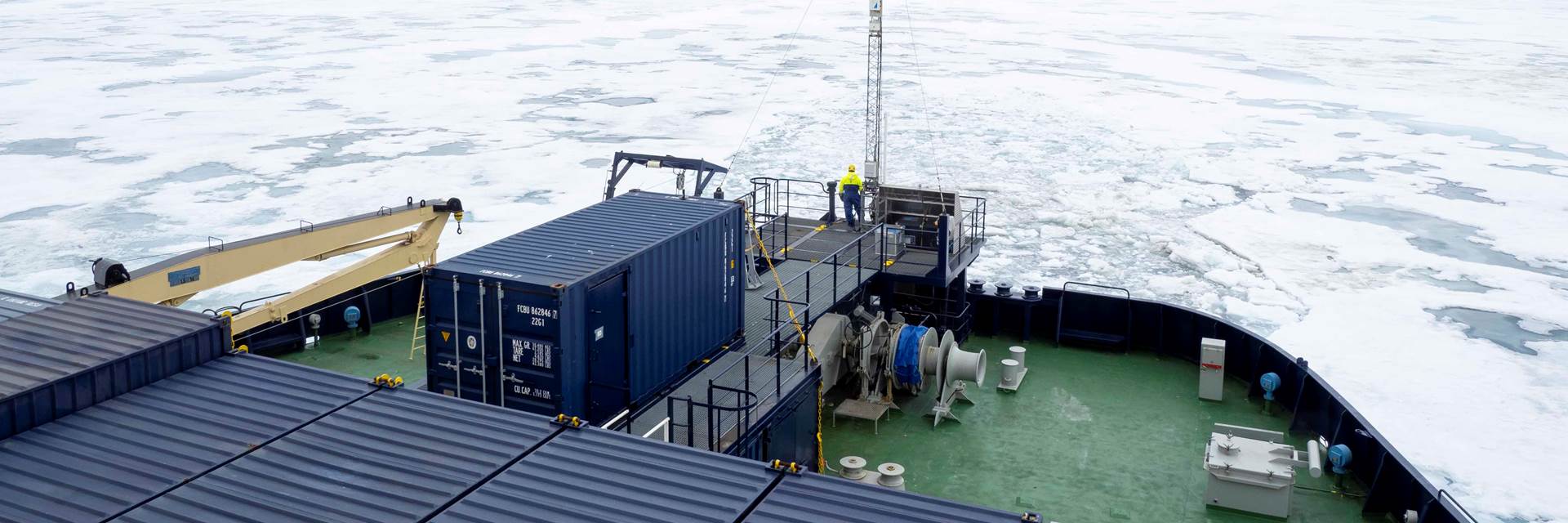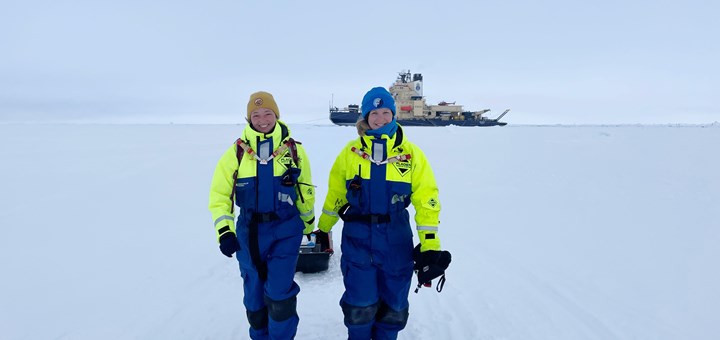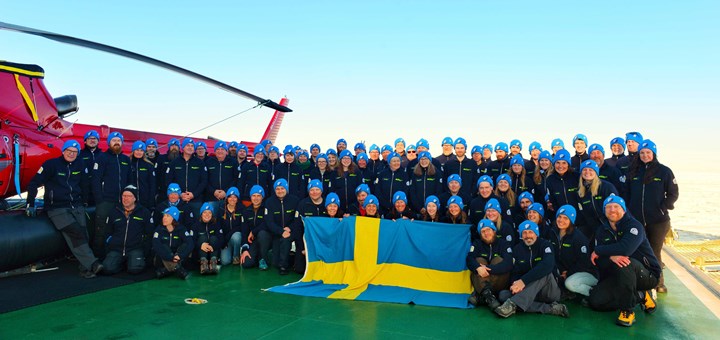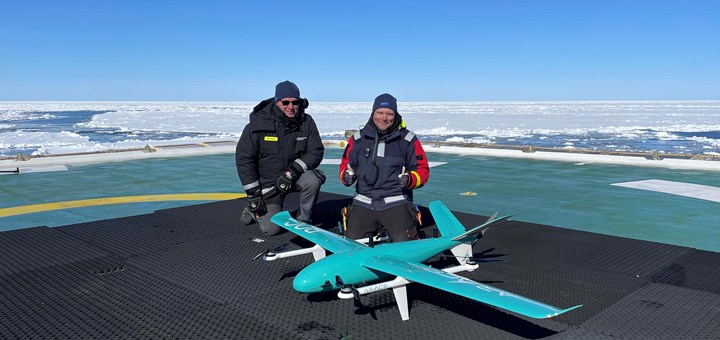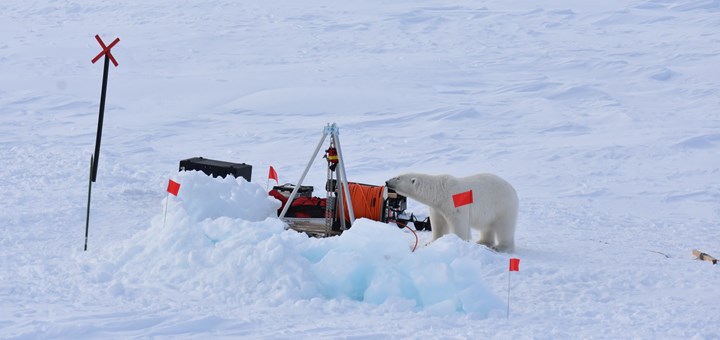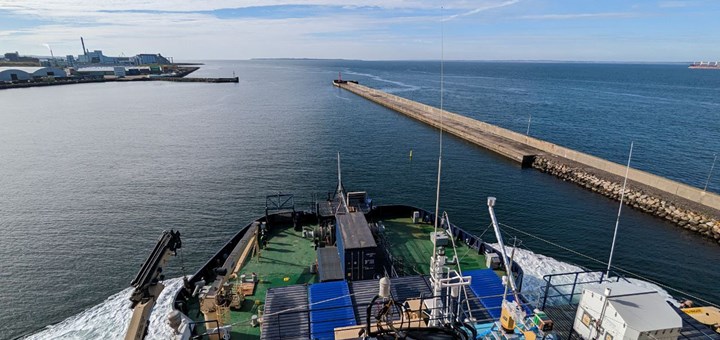ARTofMELT 2023
Arctic expeditions with the icebreaker Oden are usually carried out from July to September when the sea ice is easiest to get through. But in 2023, the researchers leave in May to get to the Arctic Ocean at the beginning of the melting season. The researchers within ARTofMELT (Atmospheric rivers and the onset of sea ice melt) want to find out, among other things, when the ice starts to melt and what processes are important for the melting process.
One theory is that powerful flows of warm and moist air penetrate from the south and set in motion the melting of the Arctic Ocean. But so far, there are few studies that describe how this happens. However, there is research that suggests that these warm air flows become more frequent, stronger, and longer-lasting in a warmer climate. To assess the future climate more reliably – in the Arctic and globally – computer models are needed where both these air currents and the processes they set in motion are correctly described. To achieve this requires an understanding that can only be based on observations.
Once Oden is in the North Atlantic part of the Arctic Ocean, the goal is to get to the areas where warm air pushes up from the south. Using specialized weather forecasts, the icebreaker Oden will navigate in advance to positions where warm air is expected to arrive. The researchers can then make detailed observations focusing on understanding important processes.
Expedition report
Fast facts
7 May – 15 June 2023
Area: Arctic Ocean
Ship: Icebreaker Oden
Chief Scientist: Michael Tjernström
Co-Chief Scientist: Paul Zieger
Universities: 19
Nations on board: 10
Work packages: 12
Artist: Ida Rödén
Expedition coordinator: Åsa Lindgren
Where is Oden now?


39 researchers from 19 universities in 10 countries are participating in the expedition on board icebreaker Oden.
Videos about the expedition
Follow the expedition on Stockholm University
Read more
Research areas
The icebreaker Oden will conduct the expedition in the Arctic Ocean with the aim of understanding the interaction between the latitudes and the Arctic and what happens when the annual surface melt of sea ice begins, which is a central issue for many Arctic scientific disciplines. Within the current theme, the following areas will be of interest to study.
- Atmospheric sciences: meteorology, aerosols, aerosol-cloud interaction, cloud physics, atmospheric chemistry and transport of airborne pollutants
- Physics and chemistry of snow, as melt starts
- Sea-ice physics; ice response to a changing surface energy budget
- Upper-ocean mixing and heat transfer, from the ice and downward
- Marine chemistry, biology and biogeochemistry
- Coupled vertical fluxes of energy, momentum, gases and matter between all of the above

